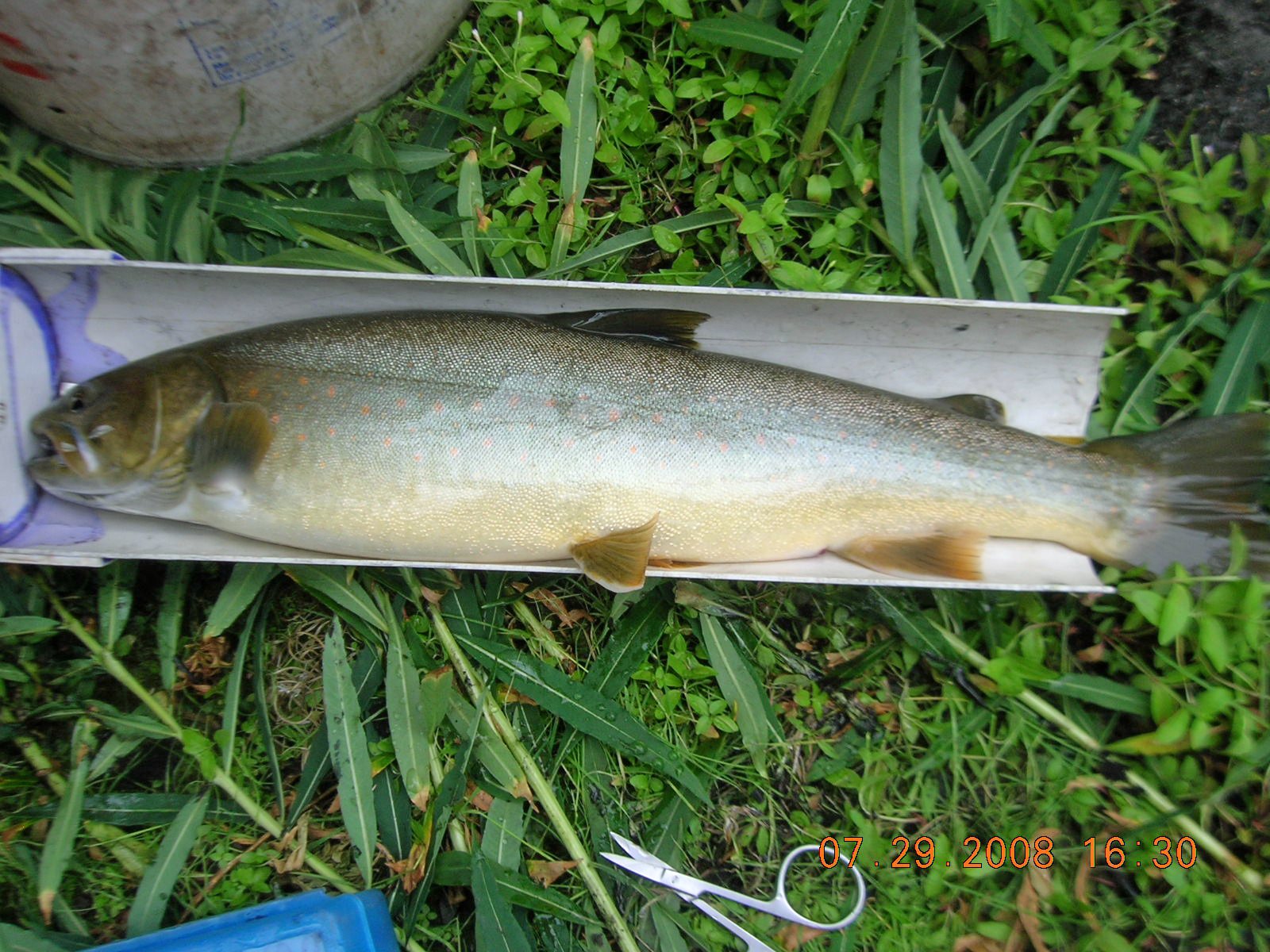PORTLAND, Ore. (CN) — A panel U.S. Circuit Judges put the kibosh on conservationist groups’ attempt to replead their case for endangered bull trout in the Ninth Circuit, marking the end of a six-year legal battle against the U.S. Fish and Wildlife Service.
On Wednesday, Circuit Judges Michael Hawkins, Margaret McKeown, both Bill Clinton appointees, and CircuitJudge Gabriel Sanchez, a Biden appointee, affirmed Montana’s district court judgment in favor of Fish and Wildlife, dismissing claims that the agency's recovery plan under the Endangered Species Act does not do enough to protect bull trout.
The opinion comes four weeks after the judges met with attorney Rebecca Smith representing Save the Bull Trout, Alliance for the Wild Rockies and Friends of the Wild Swan, where the panel questioned the latter groups’ intentions for bringing a similar Oregon case to the Ninth Circuit in 2018.
“A second adjudication is precisely what plaintiffs attempted here,” stated the opinion, adding that contrary to the groups’ argument, “The Oregon district court’s dismissal of the original complaint reached the merits of those claims. Dismissal for failure to state a claim is a judgment on the merits for purposes of claim preclusion.”
Hawkins had stronger words for the conservation groups, writing, “After the Oregon district court dismissed their initial complaint alleging claims concerning the plan, plaintiffs elected not to amend to fix the deficiencies identified in the court’s order.”
“Instead,” added Hawkins. “Plaintiffs appealed, and only after losing on appeal did they pursue amending their complaint. The Oregon district court denied their motion to amend, finding no grounds for reopening the judgment. Rather than appealing that determination, plaintiffs initiated a new action in the District of Montana, pressing the same fundamental challenge to the legality of the Bull Trout Recovery Plan.”
Had the conservation groups succeeded in appealing Fish and Wildlife’s recovery plan requirements, the agency would have been made to include target population numbers before an endangered species is delisted. Additionally, the appeal would have capped nearly 30 years of litigation regarding endangered bull trout, which the Alliance for the Wild Rockies and Friends and the Wild Swan have attempted to protect in court since 1992.
As the story goes, the Alliance for the Wild Rockies and Friends of the Wild Swan petitioned Fish and Wildlife to list bull trout as endangered and designate critical habitat. Fish and Wildlife finally listed bull trout as endangered in November 1999. But in 2001, the same groups filed a lawsuit against the agency for failing to designate critical habitat for bull trout as required under the Endangered Species Act. The issue was not resolved until 2010.
Then, in 2013, the groups sent a 60-day notice of intent to sue to Fish and Wildlife, stating it must complete a recovery plan for bull trout. The agency agreed to issue a final recovery plan by mid-September 2015, but a month later, the groups sent yet another 60-day notice calling the recovery plan inadequate. Litigation began in the District of Oregon in April 2016, after which a federal judge found the court lacked jurisdiction and dismissed the case — leading the groups to appeal to the Ninth Circuit.
The Ninth Circuit affirmed the dismissal, leading the groups to file an amended complaint that was also dismissed. However, the judge offered one glimmer of hope: “I also find that Judge Acosta’s findings and recommendation made no predetermination of plaintiffs’ ability to be heard on the merits if they choose to file a new complaint.”
As a result, the groups filed a new complaint in 2019, this time with Save the Bull Trout as a primary plaintiff. According to 8KPAX, Save the Bull Trout attorney Rebecca Smith argued the 2015 recovery plan was too subjective because it allowed Fish and Wildlife to decide the fish’s status based on their evaluation of threats to various populations.
Additionally, the 2015 plan did not include population targets when its 2002 draft plan did. U.S. Magistrate Judge Kathleen DeSoto questioned whether populations were necessary, stating that she was unaware of any recovery plans that included such numbers, and subsequently denied the motion for summary judgment a week later.
The groups then appealed, thus bringing matters yet again to the Ninth Circuit panel, who questioned the group’s attorney on whether she could appeal a case that is, effectively, only different by one plaintiff.
“If we take your view of this, doesn’t that mean that you would be able to just continue to refile in district courts in the Ninth Circuit? No matter how many times?” asked U.S. Circuit Judge Gabriel Sanchez on Aug. 31, 2022. “Because if those actions fail, it’ll be based on a lack of subject matter jurisdiction, which means that you’d have license to file it again.”
Today’s opinion, however, appears final, as the judges concluded: “Plaintiffs are not entitled to a do-over. They must bear the consequences of their strategic choices in the Oregon litigation. Because we affirm on the basis of claim preclusion, we pass no judgment on the merits of Plaintiffs’ claims or the district court’s assessment of them.”
Subscribe to Closing Arguments
Sign up for new weekly newsletter Closing Arguments to get the latest about ongoing trials, major litigation and hot cases and rulings in courthouses around the U.S. and the world.









